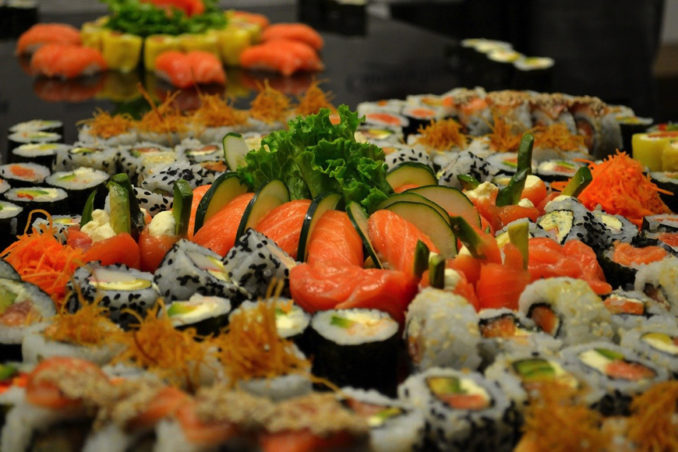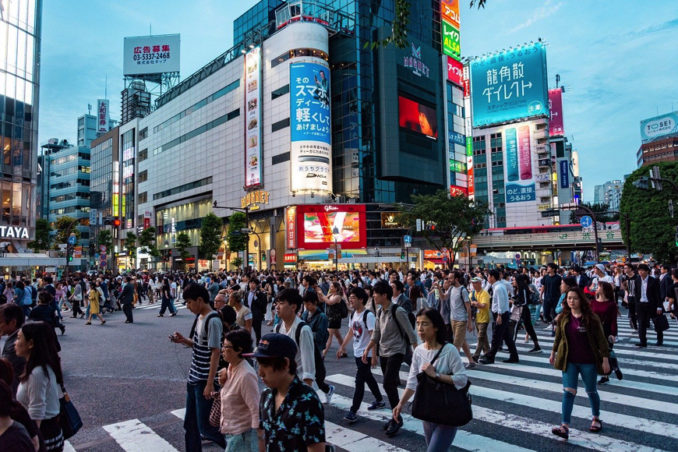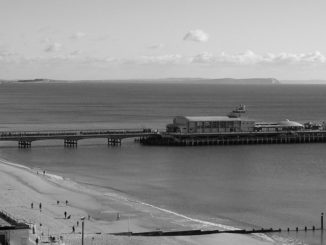In 1985 I worked for Mitsubishi Electric and that gave me the privilege of visiting Japan three times and getting to know something of the Japanese working and business psyche. It introduced me to Japanese culture and ethics that still hold some affection and unique memories for me.
Mitsubishi Electric office was a Centre Point. It’s actually a soulless building. On my first day at Mitsubishi, I was told “Company meeting with Kobayashi-san at ten o’clock”. At the meeting, there was a racial divide. Japanese staff with bowed heads on one side of the office and local staff on the other. Kobayashi-san painfully explained that the company accountant had been sacked for stealing money. He was upset.
“san” is a semi-formal suffix way of referring to people, even Brits. I was “Lugosi-san”
Here was the indication of the first cultural difference in a nutshell. Japanese staff found it difficult to read the intentions and honesty of local staff. When they discovered the theft they were deeply pained that someone should treat them this way. Stealing is a painful dishonour.
In departmental positions, the local manager was mirrored by Japanese national. Only the brightest got sent abroad and they were competent and friendly. They were generous too, always treating us to a Chinese meal, rarely Japanese because of the expense, although I’ve had a good helping of sushi, sashimi and shabu-shabu in my time. They also sent younger, very bright, university graduates known as OJT – On The Job Trainees. I detected they actually had more suspicion about us Brits than the older Japanese staff.
“We are sending you to the factory in Osaka”. Was I excited! There were problems with the POS system they had sold to the World-Wide Co-Op movement and I was the expert on what was wrong and how to fix it. The flight was on JAL (Japanese Airlines) and the route is across the pole. The stop is in Anchorage, Alaska and 80% of the passengers milling around are Japanese. The most prevalent duty-free on display was whisky, bourbon and brandy. They seemed to be big spenders. I went outside the airport building to the observation gallery and that was the first time I breathed real fresh air.
I was given a piece of paper with the name of my hotel to hand to the taxi driver at the airport. Japanese taxis have some curious mechanical arrangement where the driver can open the passenger door by a lever next to the driver. All the drivers wear white gloves. Airport to hotel was one traffic jam for two hours. No need to pay. Saying “Mitsubishi Denki” was enough to add the bill to the company account.
I took a train to the station nearest the factory and then a taxi. Through the gates of the factory were hundreds of workers dressed in blue overalls and company baseball caps with the Mitsubishi logo. I waited in a reception area. “Would you like to use the bathroom?” asked a receptionist. I then came across a smelly hole in the ground. A squat toilet. Welcome to Japan! I was then called back because I had been directed to the wrong facility. They also had a Western toilet I should have been directed to.
I took the train from Osaka station every morning. I learnt to look for the Japanese sign for my train. Osaka station in the morning had thousands of people marching up and down escalators and across the concourses. It was like an army on the move. There are numerous small counters with workers collecting food boxes. Martial music is playing over the speakers that I believe were to encourage people to move quickly. Newsstands had many sadomasochistic comics that were exclusively showing women in bondage. I was surprised to see them being openly read on the train. The carriages were very crowded and guards were stuffing people in but, curiously, the Japanese would make space for me.
In the evening I would walk around the station complex and it’s full of places to eat from holes in the wall. They are mostly yakitori and noodle bars with seating on the pavement for no more than ten people. There were groups of suited salary-men stumbling from bar to bar alternating between beer and food. Salary-men ties always have soup stains on them.

I like the look of the food but can’t speak Japanese to order it. I was taught the phrase “koarai o kudosai” which roughly translates to “one of those please”. As long as I could see what I wanted I wouldn’t go hungry.
The Japanese worker gets company food for lunch. It’s called a Bento Box. Sectioned off with something that looks like meat, something that looks like vegetables, rice and pickles. Too disgusting for a guest so they had traditional Japanese food like tempura delivered to me. Very delicious it was too.
Japanese offices demonstrate managerial hierarchy. Imagine rows of back-to-back tiny desks and at the end is a larger desk where the manager sits. Think of a supermarket aisle with the feature cabinet at the end. The desks were full of paper because email wasn’t available. They relied on fax machines. Seniority is represented by age. The oldest guy was the section manager irrespective of ability. I found that out many times where the younger employees would complain at their manager’s intransigence and open mind to new ideas.
Every night I was taken out. Three memories stand out for me:-
- I was taken to the company club where they hired two hostesses to make sure we were fed and watered (no, no funny stuff). They weren’t Japanese strangely enough. There was karaoke and they thought it was funny to hand me the mike to embarrass the “gaijin”. It just so happens I can hold a tune (could) and chose “Country Roads”, which seems to have been a favourite. I was followed by a Japanese guy who rendered a song in Japanese with a trembling emotional voice. Apparently it’s very traditional. After that, I was mildly rebuked because I kept wanting the mike. This was a Japanese bar for Japanese people and I was tolerated, just. Behind the bar are 100’s of bottles of whisky with the name of the company who owns it.
- On the way to the bar I was with my Japanese colleague/minder. We walked across a very wide pedestrian crossing with maybe 200 hundred people. In the middle a middle-aged Japanese guy starts shouting at me. My friend guides me across the street with a protective hand. “What was he saying?”, I ask. “He was shouting at you because of Hiroshima”.
- Straight from work we take a taxi to a yakitori bar. After five minutes I am alarmed “Where’s my bag?”. I left it in the taxi. “Don’t worry” says my host and he makes a phone call. Half an hour later the taxi driver appears carrying my bag. My expectation was that the next passenger would just steal it or say nothing. In Japan there is honour and honesty. To have offered him a reward was an insult.

The Mitsubishi office in Osaka is about the 30th floor of the office skyscraper. You are taken there in a high G-force lift managed by an ever bowing attendant. One day, 30 floors up there is a loud bang and the floor shakes. “What’s that?”, we Brits are shaken. The staff laugh “Just an earthquake Lugosi-san”. There is absolutely no doubt the building is swaying. “It’s OK, it happens a few times every month”.
Osaka seems to have as many floors below ground as are above it. There is the most fantastic food hall there. If only I knew what I was buying. It’s like a dead aquarium.
It’s near to closing time and I spot a department store so I go in. It’s empty of shoppers except for me and along every aisle there is a shop assistant girl and as I pass they bow. It’s like being in a dystopian world full of androids.
On my last night in Osaka, I was taken to the company house to be served a traditional Japanese meal by kimono-wearing hostesses. You never fill your own cup of sake, which is why the Japanese get drunk quickly. Even a mildly tee-total Brit can do much better. Kampai is the Japanese equivalent of cheers. Warmed sake is rather pleasant and goes down easily and quickly.
On the plate in front of me is a large prawn fluttering away and holding on to life. They all laugh at me. The tradition is that they show you that the prawn is fresh then they take it away and boil it before bringing it back.
The Japanese like to test the Westerner with its food and drink. They bring me a glass of something called shochu, a clear liquid distilled from rice and grain. It is served with a chopstick and in the glass are two testicles. Actually, they are sour plums. You gently bruise the plum before drinking the shochu. We Brits are made of sterner stuff so I mash the plums, much to the horror of my hosts. Tasted fine to me.
Leaving Osaka for home I was advised to allocate three hours to get to the airport, a journey that might take 40 minutes if the traffic was moving. Japanese taxis should be hermetically sealed with fresh oxygen such is the pollution from the traffic.
On arriving home I visited my best friend. I craved some Brit food after two weeks in Japan and his mum made me egg, chips and beans. Heaven.
(Writing about the taxi above brought me a memory of Sweden. I was there with a senior Japanese engineer. A frail person with glasses. One evening we were hurtling back to our hotel by taxi on unlit and frozen roads with a driver who didn’t look too savoury. My only thought was I hoped my friend knew karate and Japanese martial arts in case of trouble).
The Goodnight Vienna Audio file



